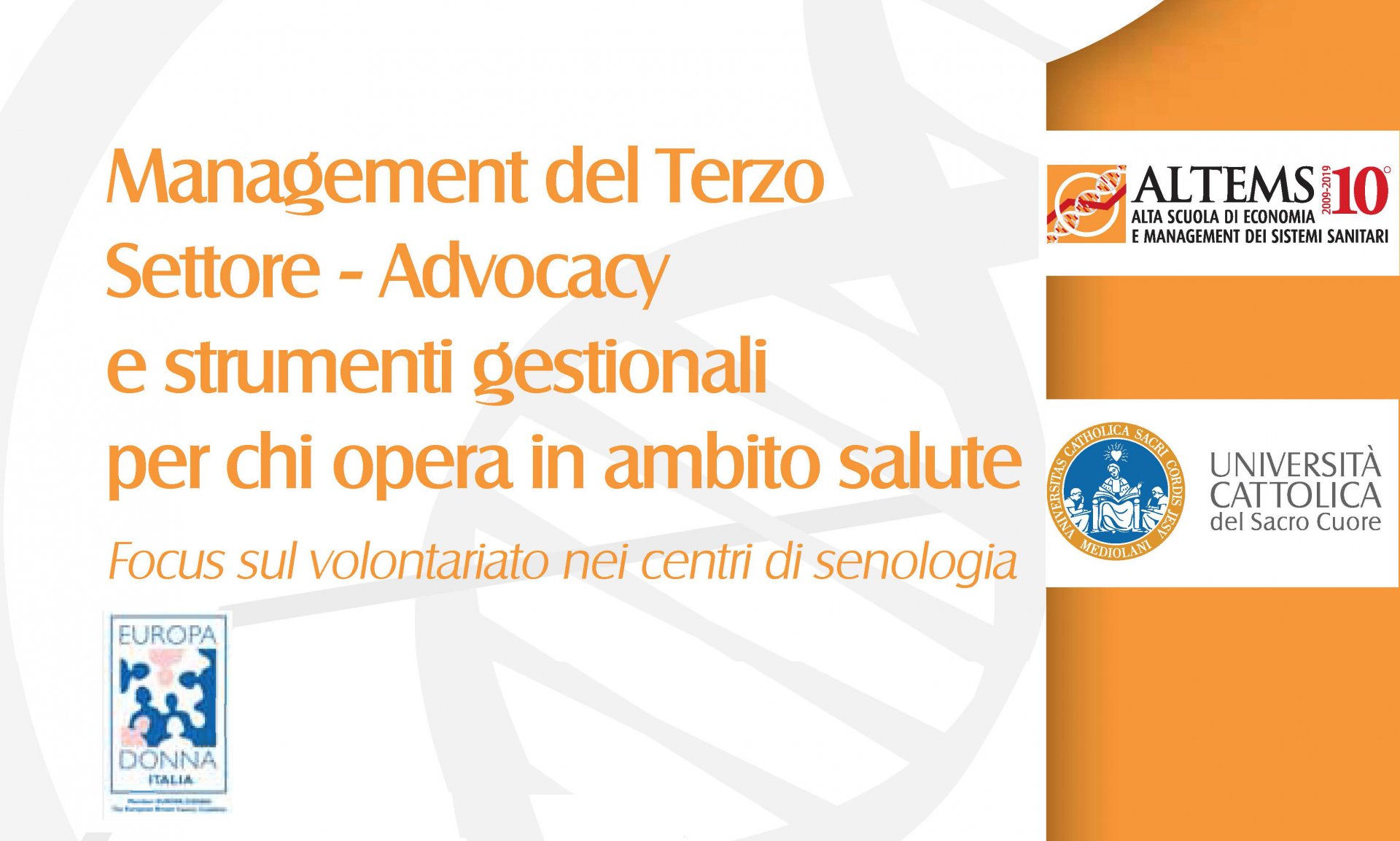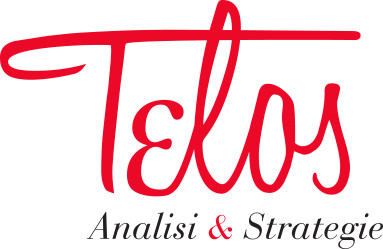Lobbying and Healthcare. What role can associations play?
Do associations in the healthcare sector lobby? Yes, of course. But they should do more and with greater awareness. Mariella Palazzolo of Telos A&S gave a lecture on this topic in the Advanced Training Course born from the collaboration between the Department of Specialisation of Economics and Management of Health Systems - ALTEMS of the Catholic University and Europa Donna Italia.
The aim of the course is to help volunteers working in breast centres to have a say, through the representation of the interests of women and their families to the Institutions.
In the lecture given by Palazzolo it emerged that often those who engage in lobbying in the healthcare sector make errors of assessment, which render pointless the efforts they made.
"A classic misconception is to think that health policy is the work of the Ministry of Health alone. This isn’t the case. Other ministries can have a decisive influence on political decisions. Among those, the Ministry of Economy and Finance, the Ministry of Economic Development and the Ministry of Labour and Welfare", Mariella Palazzolo clarified.
The Treasury, just to give an example, determines the financing of the National Health Service and defines what falls within the Basic Levels of Assistance (LEA), i.e. which services citizens can use free of charge or with the payment of a duty, the famous ‘ticket’. In addition, the Treasury also supervises the Regions running a deficit and can decide whether to tighten the purse strings.
But that’s not all. The Ministries of Economic Development and Labour take part in the "working groups", decision-making bodies which indirectly also affect Health policies.
However, in the complex decision-making arena of the health system, it can also happen that the Presidents of the Regions have greater weight than Health Ministers themselves. The Regions are always the main institution in the Healthcare sector, and they are responsible for key decisions on the ground.
Against this multifaceted background, it is essential that third-sector associations become real professionals in their lobbying activities. In fact, it is not enough to arrange appointments with political decision-makers to present the association and its activities. It is important to understand how the strengths of an association can be leveraged by building a solid and tangible proposal. So, unless you want a comforting but useless pat on the back, it is necessary to get organised to go and propose something that is feasible and that brings value to the institution to which it is presented. Otherwise, money, time and hope are thrown away.






SocialTelos